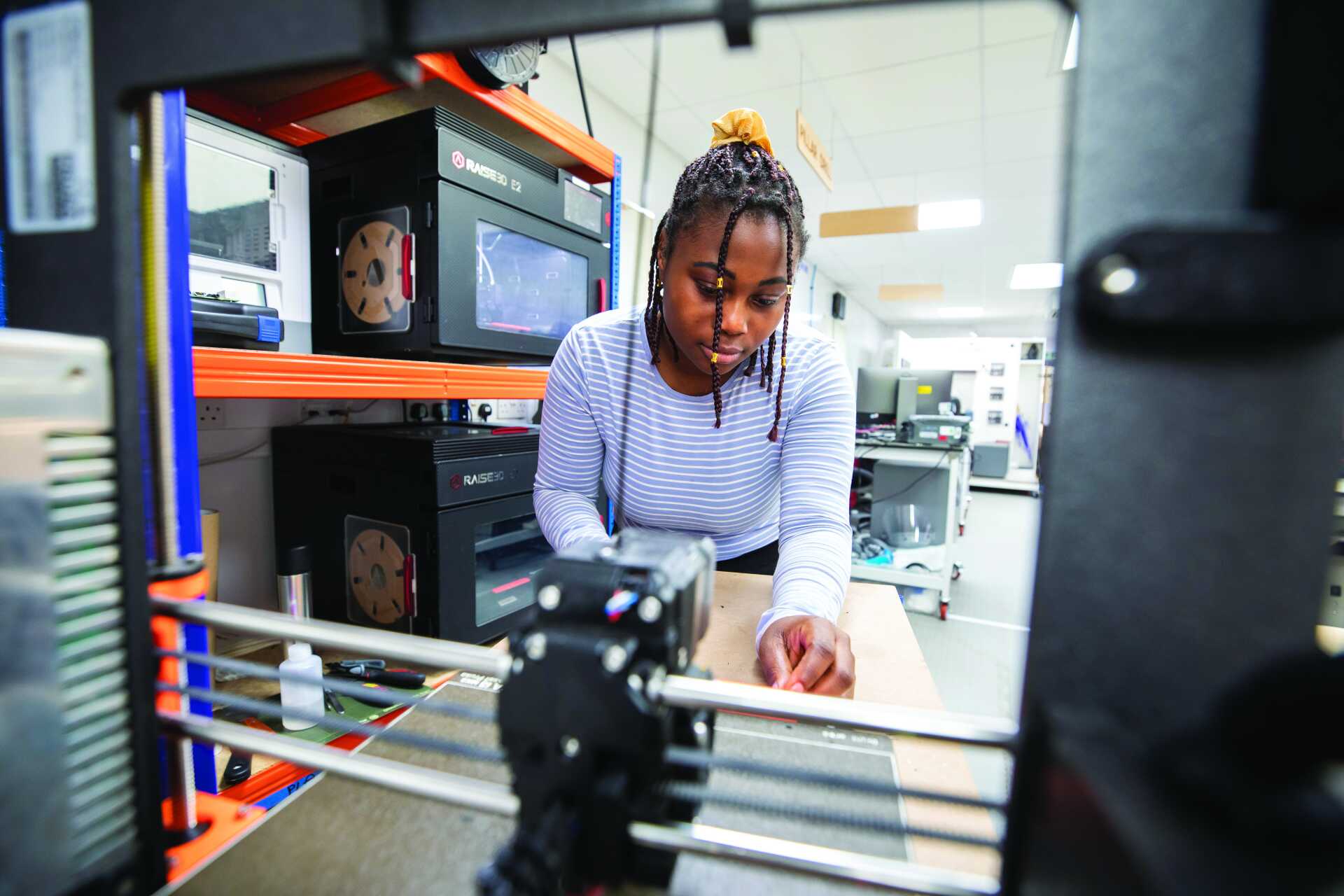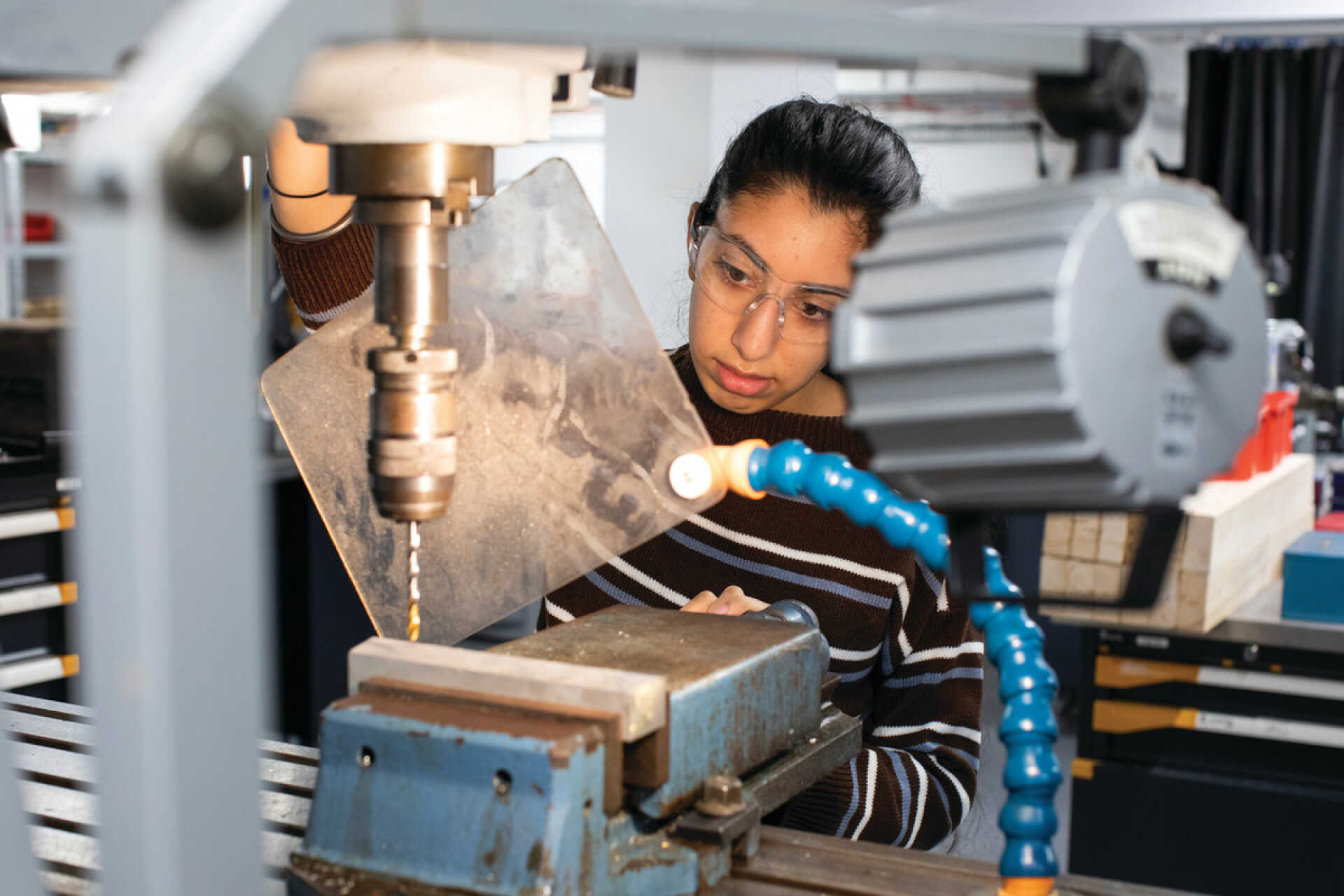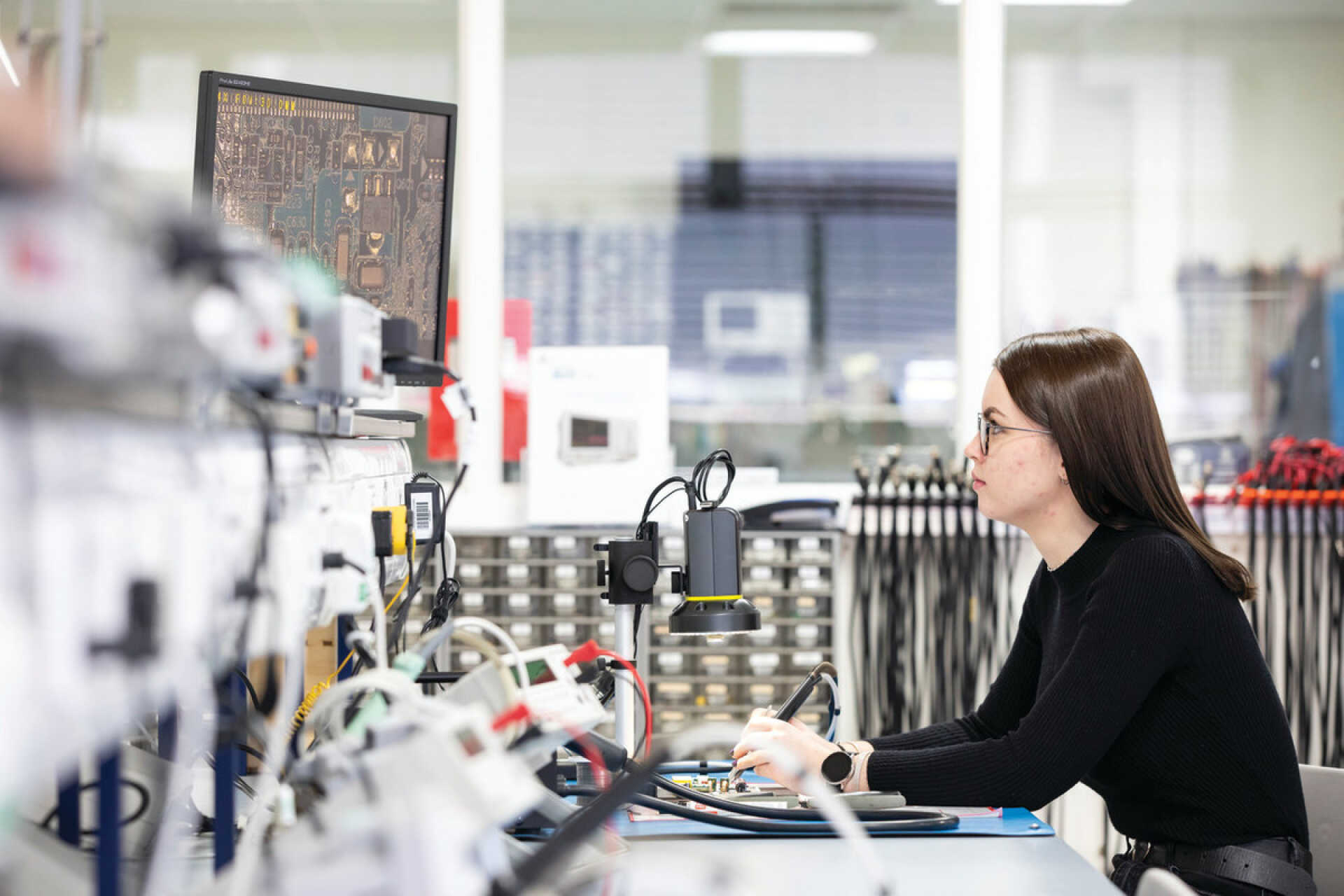Electronic and Computer Systems (top-up)
Fast-track your degree and kick-start your career in computing.

Fast-track your degree and kick-start your career in computing.
Electronics-based products play a vital role in our daily lives, from the sophisticated diagnostic equipment used in modern hospitals to leading-edge fibre optic communications. Computer technology, telecommunications and consumer electronics are advancing at an ever-increasing pace.
Our Electronic and Computer Systems BEng (top up) is designed to allow suitably qualified students, such as successful Engineering Foundation Degree graduates, to take a one-year Stage 3 course. This leads to the same level of qualification as for students taking a traditional three-year course so you can take your expertise into the industry faster, to match your ambitions.
At Kent, we offer degree programmes teaching state-of-the-art technology, which means our graduates can work at the forefront of all the major areas of electronic engineering and build a sustainable future.
You'll study the principles and methodology of electronic and communications engineering and gain specialist skills in hardware and software. Subjects covered include electronic circuit and system design, embedded systems design and control engineering. Our teaching is research-led so you get to know about the latest cutting-edge technologies, and this one-year programme combines theory with vitally important practical and project work – the chance to turn ideas into real systems.

We have excellent industrial links, providing you with many placement opportunities.
94% of research at Kent was found to be of international quality in the most recent research rankings (REF 2021).

We have invested in cutting-edge equipment and facilities that will support you during your degree.
In a world going through technological, economic and cultural change, the demand for our graduates is increasing every year.

Accredited by the Institution of Engineering and Technology (IET), which enables fast-track career progression as a professional engineer.
Our typical offer levels are listed below and include indicative contextual offers. If you hold alternative qualifications just get in touch and we'll be glad to discuss these with you.
This programme is an intensive one year top-up programme for applicants who have completed one of the following:
The applicants need to be individually considered by the Admissions Officer as the suitability of the programme will depend on the syllabus of HND/FD/Honours Degree and the grades obtained in individual modules.
Duration: 1 year full-time
The course structure below gives a flavour of the modules and provides details of the content of this programme. The following modules are what students typically study, but this may change year to year in response to new developments and innovations.
Compulsory Modules
EENG600 - Project (45 credits)
EENG6670 - Embedded Computer Systems (15 credits)
EENG6770 - Electronics for Communications (15 credits)
PLUS 30 credits from the following optional modules:
EENG6460 - Robotics and Artificial Intelligence (15 credits)
EENG6730 - Digital Systems Design (15 credits)
EENG6760 - Digital Signal Processing and Control (15 credits)
EENG5610 - Image Analysis & Applications (15 credits)
PLUS 15 credits from the following optional modules:
EENG6830 - Reliability, Availability, Maintainability and Safety (RAMS) (15 credits)
EENG5770 - Entrepreneurship and Professional Development (15 credits)
Lectures; tutorial lectures; examples classes; small group supervisions; practical's; workshops; project work; laboratory experiments and computer-based assignments. In particular, the project gives hands-on experience of hardware and software design, and project management.
Stage 3 modules, with the exception of the final year project, are assessed by a combination of coursework and examination. The programme includes project work to replicate industrial practice and develop skills to maximise employability.
For a student studying full time, each academic year of the programme will comprise 1200 learning hours which include both direct contact hours and private study hours. The precise breakdown of hours will be subject dependent and will vary according to modules.
Methods of assessment will vary according to subject specialism and individual modules.
Please refer to the individual module details under Course Structure.
For course aims and learning outcomes please see the course specification.

Our graduates find employment in a huge range of sectors such as electronic engineering and computing, telecommunications industries including radio, television and satellite communications; medical electronics, instrumentation and industrial process control. The nature of this top up programme means that if you find yourself wanting to entry the workforce quickly, to kickstart your career, Kent can provide an accelerated timeline to match your ambitions.
We hold an annual Employability and Careers Day in Engineering where you can meet local and national employers and discuss career opportunities. Ongoing support is provided by the School’s dedicated Employability Officer.
*The Government announced on 4 November 2024 that tuition fees in England for Home students will increase to £9,535 from £9,250 for the academic year 2025/26. This increase requires Parliamentary approval, which is expected to be given in early/mid 2025.
Tuition fees may be increased in the second and subsequent years of your course. Detailed information on possible future increases in tuition fees is contained in the Tuition Fees Increase Policy.
The University will assess your fee status as part of the application process. If you are uncertain about your fee status you may wish to seek advice from UKCISA before applying.
For details of when and how to pay fees and charges, please see our Student Finance Guide.
Students will require regular access to a desktop computer/laptop with an internet connection to use the University of Kent’s online resources and systems. Please see information about the minimum computer requirements for study.
Find out more about accommodation and living costs, plus general additional costs that you may pay when studying at Kent.
Kent offers generous financial support schemes to assist eligible undergraduate students during their studies. See our funding page for more details.

We have a range of subject-specific awards and scholarships for academic, sporting and musical achievement.
We welcome applications from students all around the world with a wide range of international qualifications.

Student Life

Powered by progress
Kent has climbed 12 places to reach the top 40 in The Times Good University Guide 2025.
Kent Sport
Kent has risen 11 places in THE’s REF 2021 ranking, confirming us as a leading research university.

An unmissable part of your student experience.